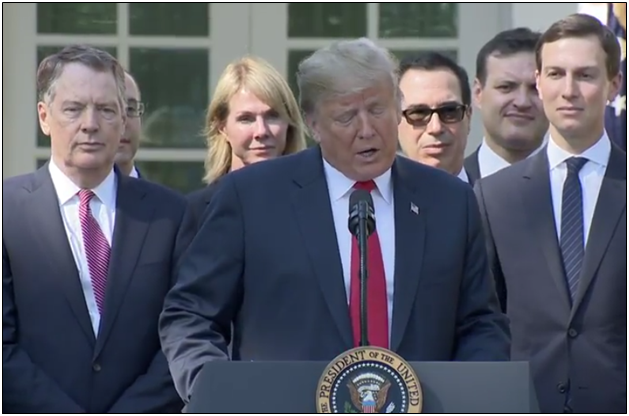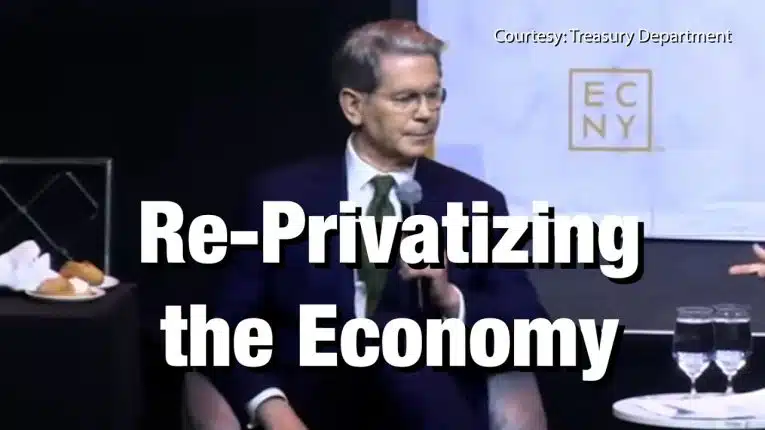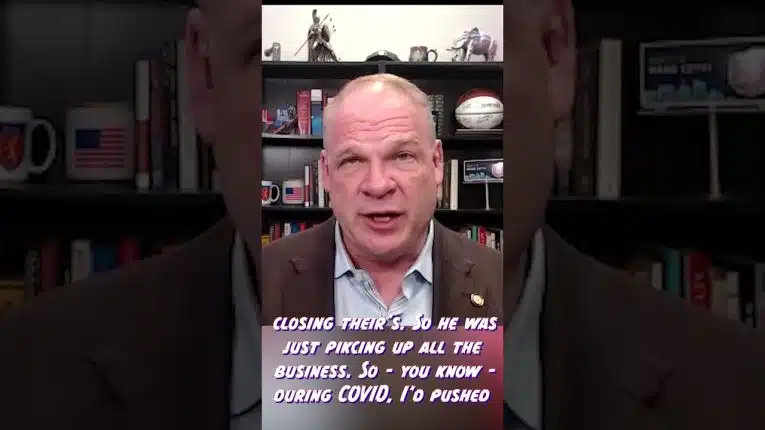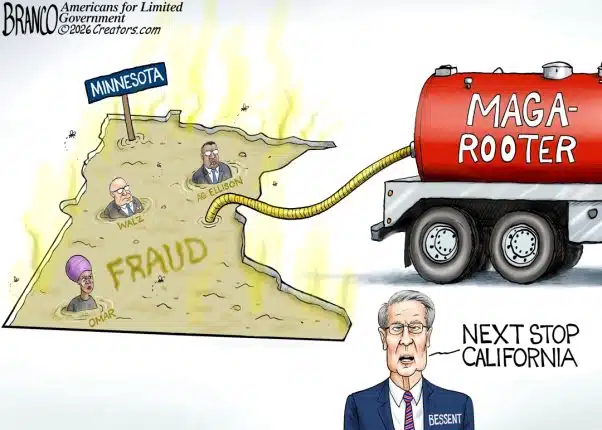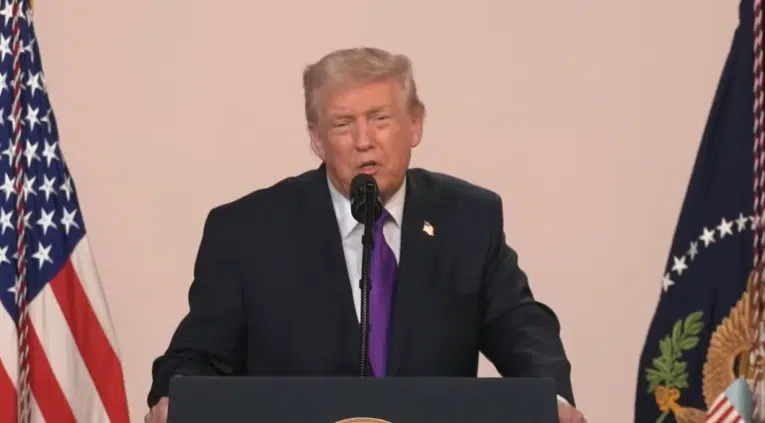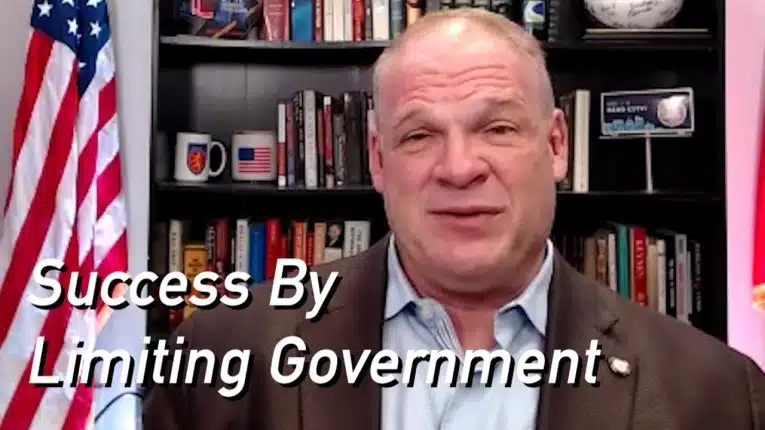By Rick Manning
President Donald Trump is very bad at being an isolationist, in fact, he is probably one of the worse isolationists in American history.
Think about it. President Trump is pushing Congress to pass the USMCA, which tears up the 40 year old NAFTA agreement and replaces it with one which protects our national sovereignty while expanding trade between the three countries on a more favorable footing for U.S. workers.
President Trump has talked to India’s Prime Minister Modi about building a bi-lateral trade relationship between our two nations. He is similarly working with the President of Brazil along the same lines. He has already rewritten the South Korean trade deal to better accommodate U.S. interests, and has expanded trade relations with Japan creating a massive corn and technology purchase. He is also negotiating deals with the United Kingdom (post-Brexit), and the European Union.
And all the while, his trade team continues to hammer away at the China trade challenge.
Rather than being anti-trade, President Trump is probably the most trade focused U.S. leader in modern history. But his goal is different than many in the past.
The current world trading system was based upon a need to win the Cold War with the Soviet Union by spreading capitalism across the globe. At its core, it was a transfer of wealth from the United States to the rest of the world in the guise of allowing foreign products to be sold in the U.S. with relatively low tariffs, while leaving tariffs on U.S. exports to these developing countries high — the essence of non-reciprocity. This had the effect of allowing those countries to not face U.S. competition in their markets so their domestic economies could thrive from the trade imbalance cash infusion that followed.
For America’s part, we received less expensive items in our stores as major parts of industries like our domestic electronics manufacturing got outsourced to Asia. When China entered the world market in a big way and was granted Permanent National Trade Relations status by the U.S. in 2000 and entered the World Trade Organization in 2001, the entire world shifted.
U.S. and other foreign multi-national businesses took the certainty that Chinese goods would have inexpensive access to the U.S. markets and invested heavily in the Chinese economy, building factories knowing that they would benefit from cheap Chinese labor while exporting the once U.S.-made toys and other goods to American consumers.
What was a giant sucking sound of U.S. jobs heading south to Mexico from the Bill Clinton negotiated North American Free Trade Agreement became a tsunami as manufacturers flocked to make products in China with the promise of not only having access to U.S. markets but also being able to sell to Chinese consumers.
With China targeting key industries like steel, aluminum, rare earth mining, electronics, autos and high tech chip manufacturing, more and more blue collar jobs were exported around the globe.
A system originally designed to help get the post-World War II world back on its feet was now sucking the life blood out of America, while still delivering low cost electronics for its trouble. The ugly truth is that, as a result, the U.S. Gross Domestic Product has not exceeded 4 percent since 2000, with what used to be the expected normal growth rate of 3 percent beyond reach since 2005.
This is why President Trump is realigning our trade relationships around the world.
By emphasizing intellectual property protections, the President is ensuring that America’s ingenuity and problem solving is not stolen by foreign countries like China and then sold back to U.S. consumers at ten cents on the dollar.
By emphasizing ending currency manipulation, the President is ensuring that deliberate, foreign government created inflationary tariffs are not imposed on U.S. products. Currently, the Bureau of Labor Statistics reports that the trade war with China has NOT resulted in increased costs to U.S. consumers or producers, while generating more than $30 billion in new tax revenue from the Chinese.
How is this possible? The Chinese have forced their wholesalers to eat some of the increased tariff costs while making the Yuan even less valuable than the dollar to keep the costs of Chinese products low.
But this only serves to emphasize the importance of the entirety of the Trump trade agenda. Passing the USMCA, and continuing to create new agreements built upon the inviolability of intellectual property rights puts up an economic wall around China, either trapping them in their anti-property Marxist doctrine or forcing them to accept private property rights for their own economic survival.
The USMCA is the first shoe to drop in this paradigm shifting strategy, and it is why it needs to be voted through the House and Senate. Yes, more, fantastic jobs are projected to be created in the United States, and quite frankly in Canada and Mexico as well. But the language of USMCA on private property and currency manipulation will serve as the models for the entirety of a series of bilateral trade deals.
Trade deals that will encompass the largest economies in the world, except China, and which will create a freedom economic noose around Beijing’s neck.
Isolationist? No, President Trump is an American President looking out for American economic interests while putting together a new international trade regime to replace the broken one that was crippling our nation’s economic future.
Rick Manning is the President of Americans for Limited Government.


